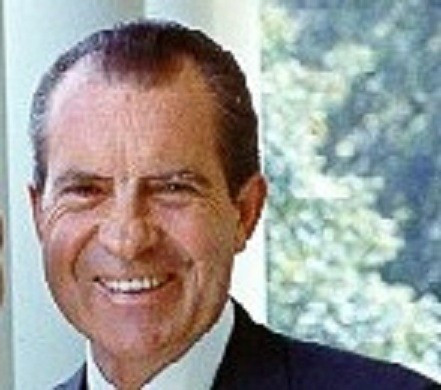How Richard Nixon 'Whupped' the West and Crowned China
Disgraced US president's foresight in opening up trade to China needs recognition on the centenary of his birth

President Nixon would have celebrated his 100th birthday on 9 January. This milestone was marked by the laying of a wreath on his grave at his birthplace in California.
I heard Nixon's August 1971 radio broadcast in a limousine when leaving Tulsa airport, having just landed from Europe. I guessed at the time this would prove the end of the Western world as I had known it. Had I also known the consequences would take some 40-plus years to finally arrive, then maybe I would not have worried so much in the interim.
The section of the speech announcing the penal import taxes on the products of nations whose currencies had been strengthening as a result of speculation against the dollar these days receives less attention than the cut in the dollar's tie to gold but gives a clue to the longer-term effects of the West's future trade versus that of China.
I was in Oklahoma to report on the progress in my employer's planned arrangements for the offshore loading at sea, direct from reservoir, of the first North Sea commercial oil discovery. Two tankers would alternate to allow continuing production without oil storage at the field. This plan involved considerable difficulties in the mooring of the ships, which it was partly my responsibility to overcome. What Nixon had delivered, I realised, was a setting loose of the West from its moorings, as though we had tried to load the vessels with no anchor to the seabed in the often storm-tossed waters of the North Sea.
While the Western world has spent the intervening 40 years agonising on how to tie the value of its currencies to a substitute for the dollar (the latest fad being inflation), the member nations have yet to realise that the essential is for it to be to something of value to mankind, such as a fair value for wheat. I have blogged often on this, particularly in August 2008 stressing the already then urgent need for action on a new Bretton Woods Agreement. The relationship between the US dollar and the RMB, on the other hand, as befits such a crucial trading link, has during this same period been carefully managed by the governments of the two countries concerned.
Part of the then weakness of the US dollar, which presented President Nixon with such nightmare dilemmas, was caused by growing energy imports, mainly in the form of Opec oil. Yankee ingenuity has come to the rescue in the form of fracking, with oil imports at the end of last year falling to only half that of the levels reached when at their peak.
In view of these considerations it is perhaps surprising that the centenary of the birth of Richard Milhous Nixon has so far been somewhat low key. Had he not opened up trade with China the present US prosperity, tied only to the failing economies of Western Europe and Japan, would, by now, have been very sorry indeed. I believe this will generally be accepted long before the centenary of ex-President Nixon's death.
Martin Cole runs politically themed blogs, mainly Ironies Too, and tweets and comments about erosion of liberties
© Copyright IBTimes 2025. All rights reserved.





















